TRANSiTION
You can still participate in TRANSiTION throughout 2025
You can apply to join the TRANSiTION project, either as a trainer or as a trainee.
Just fill out the forms to express your interest in participating.
Would you like to know more? Scroll down to learn more about TRANSiTION.


Learn More About the Courses!
- Invitation Letter for Healthcare Professionals & Non-Clinical Professionals: This letter contains detailed information for trainees on how to participate and how to register. Read the letter here!
- Invitation Letter for Trainers: This letter provides information about the Train the Trainers programme and instructions on how to register. Read the full letter here!
Empowering the Cancer Workforce with New Digital Skills
The TRANSiTION project is developing an advanced education programme for healthcare professionals and non-clinical staff (i.e. health managers), which will equip them with digital skills needed to exchange information more efficiently and effectively with patients and other professionals. The project commenced by assessing and mapping the current digital skills and has engaged directly with stakeholders to identify their specific needs. This will enable and facilitate professionals and non-clinical staff to adopt new digital tools and integrate them into their everyday practices enabling a smoother digital transition.
Led by the Cyprus University of Technology (CUT), the project collaborates with various organisations and uses a problem-solving, teamwork approach to enhance competencies. TRANSiTION has a consortium of 25 partners from 14 member states with expertise in professional development and training programmes in the healthcare sector.
The European Cancer Organisation (ECO) leads the communication and dissemination activities.
The Importance of Digital Health Literacy
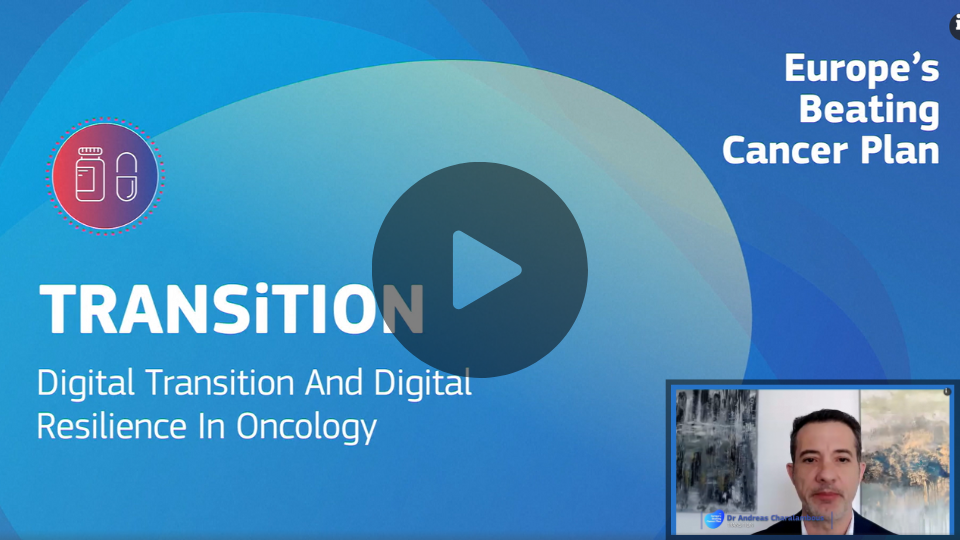
Despite digital health's enormous potential, challenges persist in cancer care, including a scarcity of workforce training on digital skills and limited digital health literacy.
TRANSiTION Coordinator Andreas Charalambous was interviewed by the European Commission and explained why digital literacy among healthcare professionals, non-clinical professionals and cancer patients is so crucial to fully implement the rapidly growing array of digital resources and how TRANSiTION contributes to support Europe's Beating Cancer Plan.
'The TRANSiTION project supports the rescale and upscale of the healthcare workforce on the latest digital skills.' He says.
Watch the full interview here!
Featured in the OECI Newsletter!
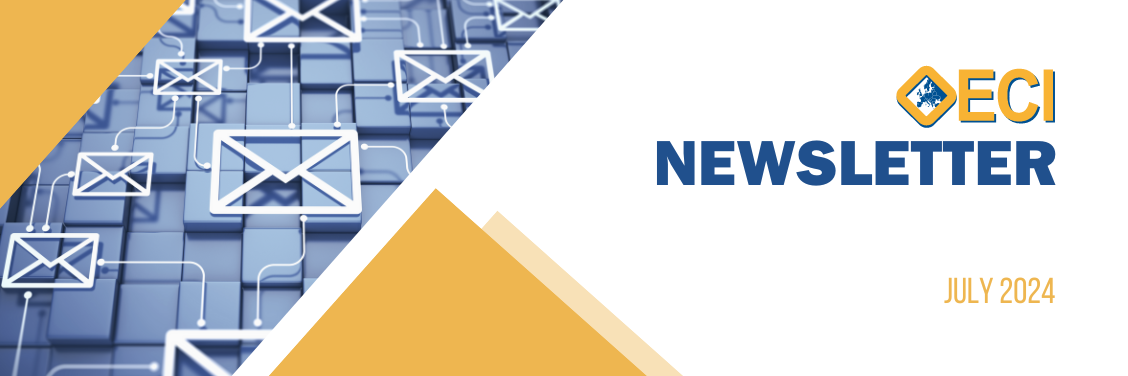
TRANSiTION was featured in the July 2024 edition of the OECI Newsletter, alongside many key projects in professional healthcare education. You can click on the image to read the issue!
IMPACT
The TRANSiTION education programme addresses the immediate needs of healthcare professionals and non-clinical staff while building a digital culture that is sustainable and adaptable to future opportunities for better cancer care across Europe.
TRANSiTION targets three groups:
- Clinical professionals in general medicine, medical oncology, radiation oncology, surgical oncology, and cancer nurses.
- Non-clinical professionals working on health planning, procurement and management.
- Patients
Find below a summary of how the TRANSiTION project will impact each target group.
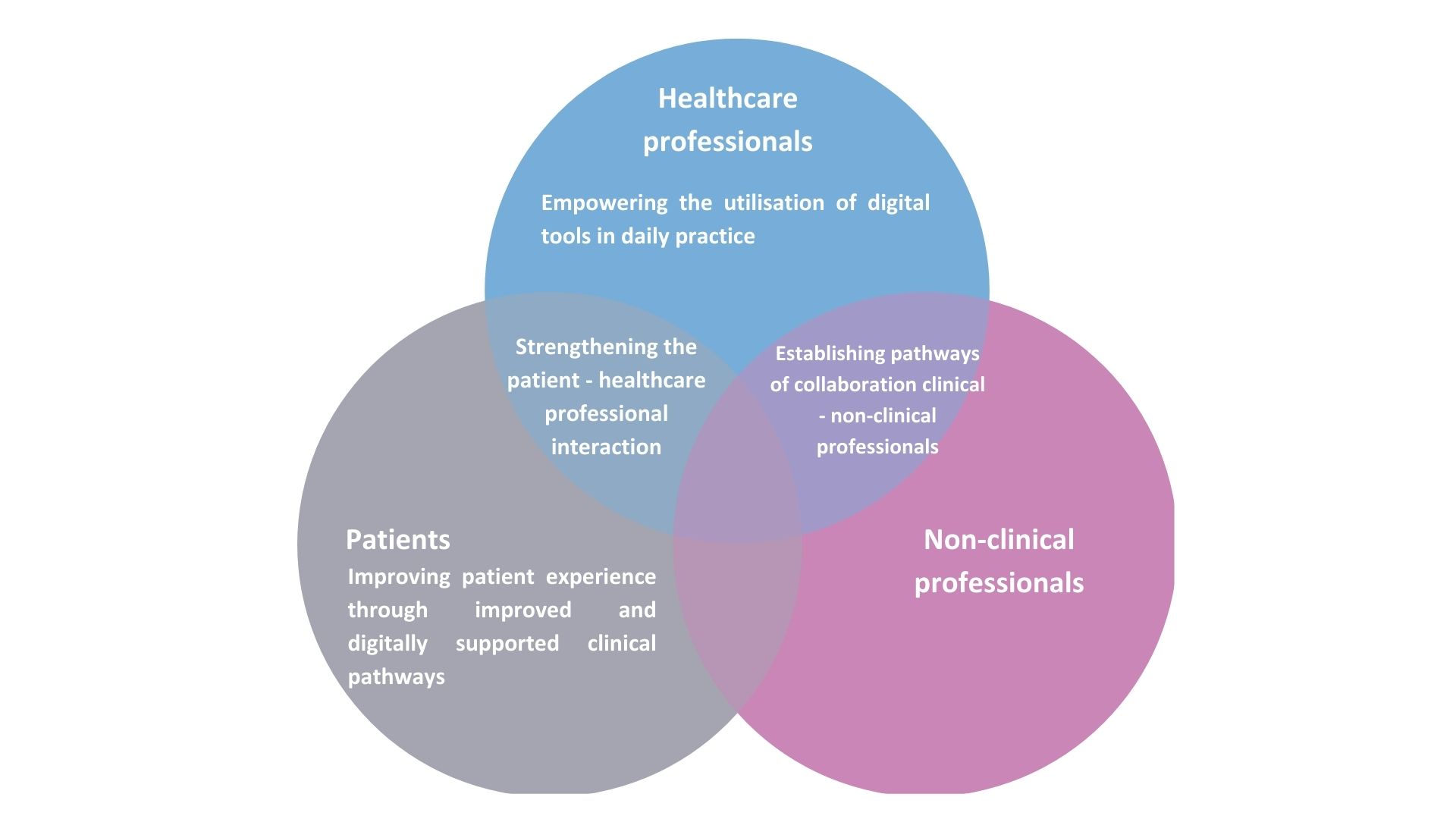
INNOVATION
TRANSiTION drives change and innovation in the health sector by identifying and optimising digital technologies for clinical and non-clinical professionals. It addresses challenges in deploying these technologies in cancer care, and enhancing the readiness of healthcare professionals to utilise digital solutions available today and in the future. This contributes to the resilience of health systems while developing skills for recovery from the COVID-19 pandemic and future crises.
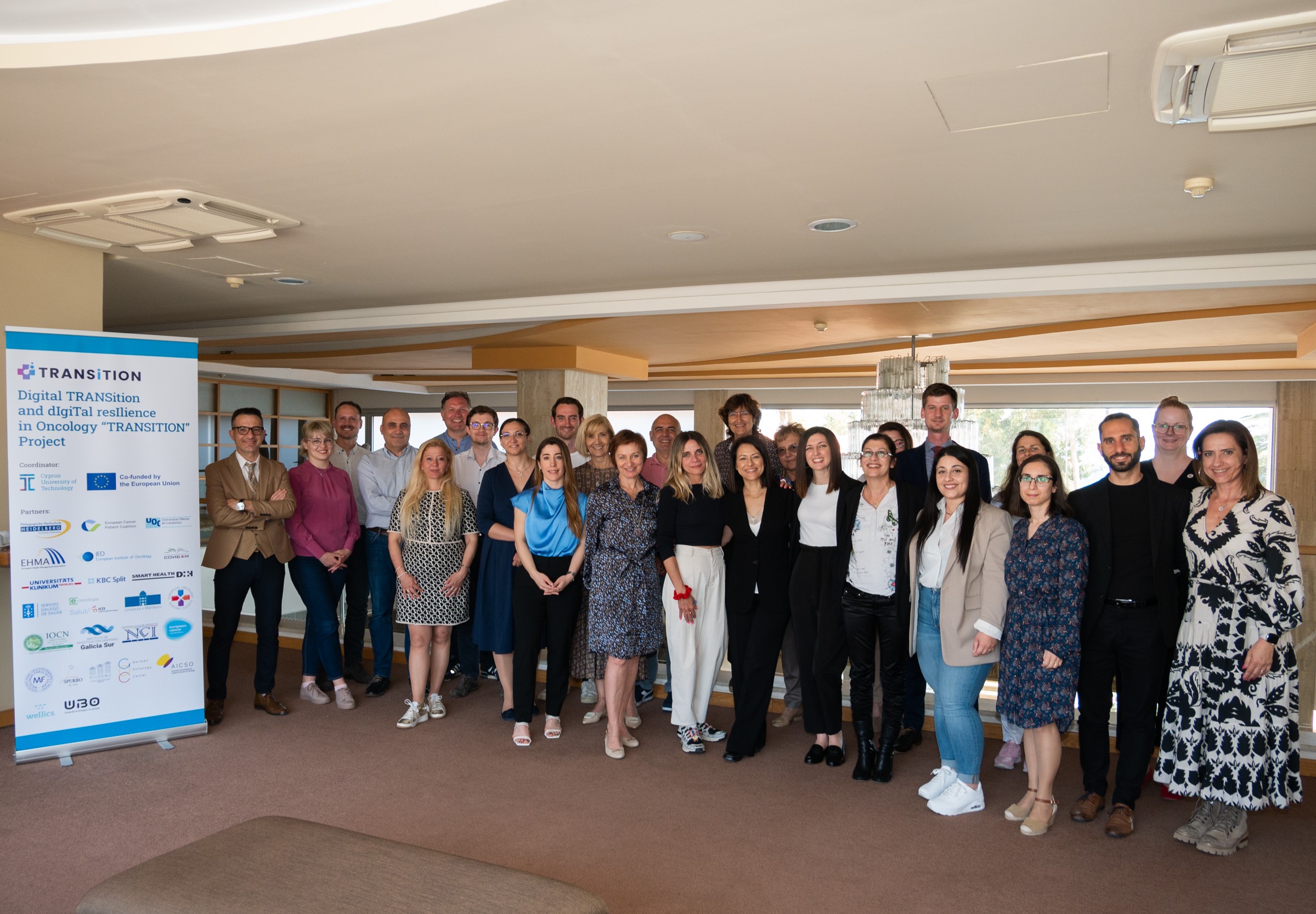
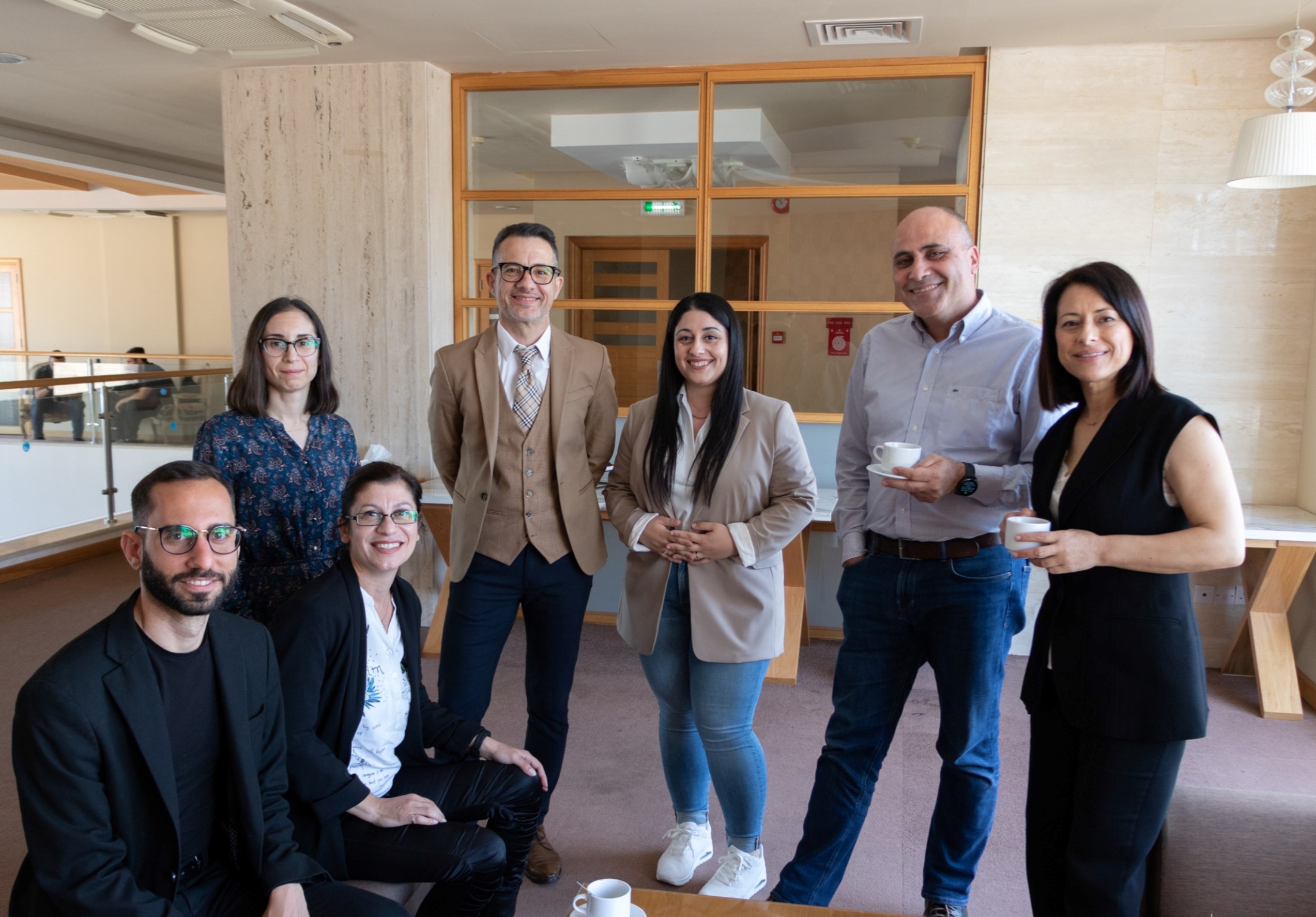
The project held its official kick-off event on 4-5 May 2023 in Limassol, Cyprus, under the leadership of Prof. Andreas Charalambous, president of European Cancer Organisation and project coordinator for the TRANSiTION Project.



The launch also included remarks from Mr Loucas Fourlas, a Member of the European Parliament and Chair of its Lancet Group dedicated to fighting cancer.

Questions or Feedback:
Send us an email using the button below.



Co-funded by the European Union. Views and opinions expressed are however those of the author(s) only and do not necessarily reflect those of the European Union or the European Health and Digital Executive Agency (HaDEA). Neither the European Union nor the granting authority can be held responsible for them.